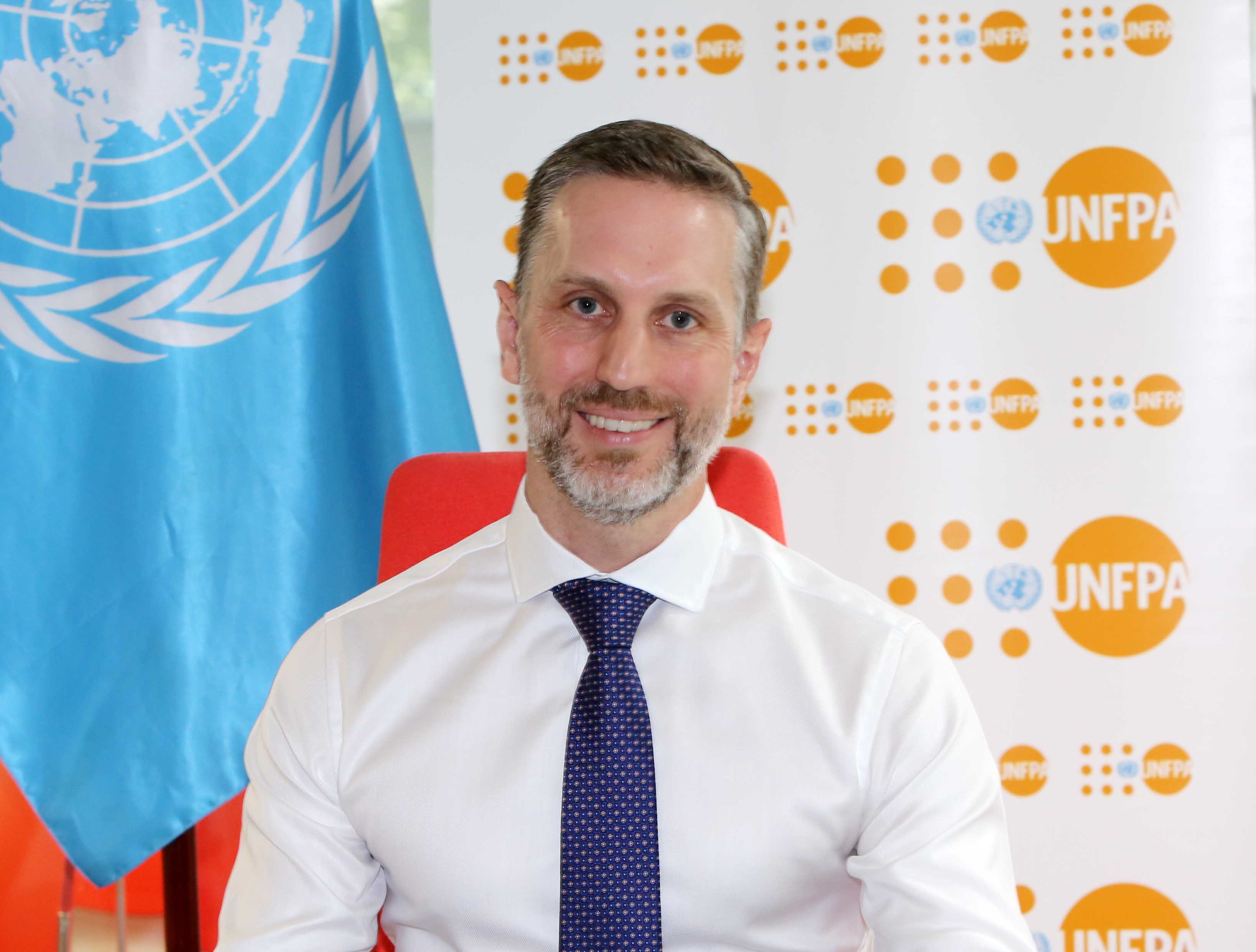International Women's Day provides a moment to applaud our shared strides in achieving complete gender equality and empowering women. It also serves as a chance to evaluate areas where progress is lacking and to recommit ourselves to intensified efforts aimed at ensuring equal rights and choices for all, regardless of location.
I recently met Mai (not her real name), a retired teacher and survivor of domestic violence who shared her story with me at one of the United Nations Population Fund (UNFPA)-supported One-Stop-Service Center in Vietnam.
Mai endured pain for many years from a violent husband and felt blamed by others in her community.
Yet with psychosocial support and advice from practitioners, Mai is now in a much better position: she feels independent, knowledgeable, and confident about her future.
And she wants other women to feel the same.
This year’s theme is 'Invest in Women: Accelerate Progress.' Over recent years, dedicated investments in the health and rights of women and girls have improved – and saved – millions of lives.
But progress is slow. Globally, in the last twenty years maternal mortality rates have declined by 34 percent, yet a woman still dies every two minutes during pregnancy or childbirth pointing to a hidden global crisis.
Vietnam has made great strides surpassing the global trend to reduce maternal mortality by 46.5 percent over the same period.
The focus must now shift to areas where rates are still high such as among ethnic minorities in rural and mountainous regions.
Another success story is the number of women using modern contraception which, globally, has doubled to 77 percent over thirty years.
Yet more than 250 million women who want to avoid pregnancy are not using family planning.
In Vietnam, the use of modern contraceptives is around 60 percent – also an increase.
However, the unmet need is four times higher for unmarried women than it is for married women.
This tells us we have much more to do in ensuring services reach adolescents and young people.
In other areas there is still more to do. Ending gender-based violence (GBV) and harmful practices such as child marriage and son preference remains critical.
Nearly one in three women globally experience violence in their lifetime.
In Vietnam, the 2019 National Study on Violence Against Women found that nearly two-thirds of women experience intimate partner violence and that 90 percent of these women never seek help.
Our response is threefold: to support services such as the national GBV hotline and One-Stop-Service Centers; to tackle root causes such as gender inequality to prevent violence; and to change the stigma associated with violence.
Of particular concern are rising levels of online violence with women and girls particularly at risk of image-based abuse.
UNFPA’s global #bodyright campaign draws attention to this and calls on governments and technology companies to do more to protect everyone online.
This International Women’s Day UNFPA in Vietnam is running an online challenge and webinar to raise awareness and share experiences of young people protecting themselves online.
This year is a double celebration as we reach the thirtieth anniversary of the groundbreaking International Conference on Population and Development (ICPD) in Cairo in 1994, where 179 governments, including Vietnam, put gender equality, women’s empowerment, and human rights at the center of development.
This international agreement forms the basis for prosperity, growth, and building resilient societies.
Indeed, achieving gender equality has a positive impact on families, communities, and the wider economy.
Every US$1 invested in maternal health can return $8 in economic benefits by 2050.
The return on investment for family planning is even higher at $10.
Investing in women’s participation in the labor force could boost global per capita GDP by nearly 20 percent, and businesses can increase productivity by 15 percent by subsidising sexual and reproductive health care for workers.
During my time in Vietnam, I am keen to support investment in cervical cancer screening and accelerate the roll-out of HPV vaccinations – simple actions that can save the lives of many women from preventable illness.
It’s important to remember that we are not just one story – there are many parts that make up our identities and our lives.
For this reason, I am committing UNFPA in Vietnam to ensuring that our projects and programs work for everyone who needs them.
To achieve this, we must be people-centered and reflect their wishes and needs.
Women’s leadership is critical to Vietnam’s social-economic growth.
I've seen women take leadership roles across various sectors, from healthcare providers in Can Tho addressing sexual and reproductive health for people with disabilities to community leaders in Thanh Hoa establishing self-help clubs for the elderly.
There are educators tailoring maternal health communications for ethnic minorities in remote areas, advocates adapting sexual health initiatives for youth and LGBTQ+ individuals, and social workers in Da Nang and Quang Ninh ensuring respectful access to services for survivors of gender-based violence.
The arguments for gender equality for individuals, communities, and the economy are clear.
Together we can create societies where women and girls are empowered to make their own decisions.
These actions will help to ensure that we leave no one behind.




















































